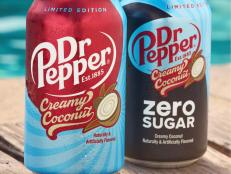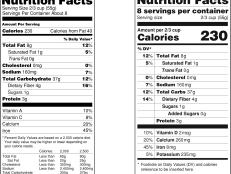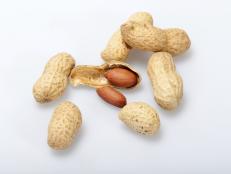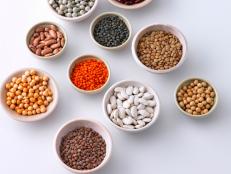Nutrition News: Hot Chile Peppers, Great Organics and Fake Supplements

In this nutrition week's news: Chile peppers may get hot with dieters; organic foods are linked to lower pesticide exposure; and buyer beware of herbal supplements barren of herbs.
Will chile peppers be the next hot thing in dieting? That is yet to be determined, but a group of researchers at the University of Wyoming are intrigued by the potential of capsaicin, the stuff that makes you feel the burn when you eat chile peppers, as a dietary supplement. The researchers are studying whether capsaicin stimulates metabolism and turns white fat into brown fat in a way that might be useful in the fight against obesity and its related health complications, like Type 2 diabetes, high blood pressure and cardiovascular disease. Although the effect has not yet been confirmed by controlled clinical trials, the researchers presented their work this month at the Biophysical Society's annual meeting in Baltimore.
Many a health-aware eater has probably wondered, while comparing fruits and vegetables in the produce aisles, whether to go for the organic or the conventionally grown options. Here's something you may want to factor in: A new study published in Environmental Health Perspectives has concluded that people who eat organic produce had significantly less exposure to organophosphates, a common insecticide linked to negative health effects, than those who report that they don't eat organic produce. Those who eat a lot of conventionally grown apples, nectarines and peaches, which are frequently treated with high levels of OP pesticides, had especially high levels of exposure. "For most Americans, diet is the primary source of OP pesticide exposure," the study's lead author, Cynthia Curl, an assistant professor in Boise State University's School of Allied Health Sciences, said. "The study suggests that by eating organically grown versions of those foods highest in pesticide residues, we can make a measurable difference in the levels of pesticides in our bodies."
Perhaps you've heard? Last week, the New York state attorney general’s office announced that a startling number of herbal supplements sold under Walmart, Walgreens, Target and GNC store brands were found in testing to contain ingredients not listed on the labels (inexpensive fillers like rice, house plants and even common food allergens). What’s more, about four out of five of them contained none (nope, not any!) of the herbs listed on their labels. "At GNC, for example, the agency found that five out of six samples from the company's signature 'Herbal Plus' brand of supplements 'were either unrecognizable or a substance other than what they claimed to be.' In pills labeled ginkgo biloba, the agency found only rice, asparagus and spruce, an ornamental plant commonly used for Christmas decorations," the New York Times reports. "At Target, the agency tested six herbal products from its popular 'Up and Up' store brand of supplements. Three out of six — including ginkgo biloba, St. John's wort and valerian root, a sleep aid — tested negative for the herbs listed on their labels. But the agency did find that the pills contained powdered rice, beans, peas and wild carrots.' Yes, outrageous. Here's a more-complete list.
Amy Reiter also contributes to FN Dish.
Photo: iStock.com.

































